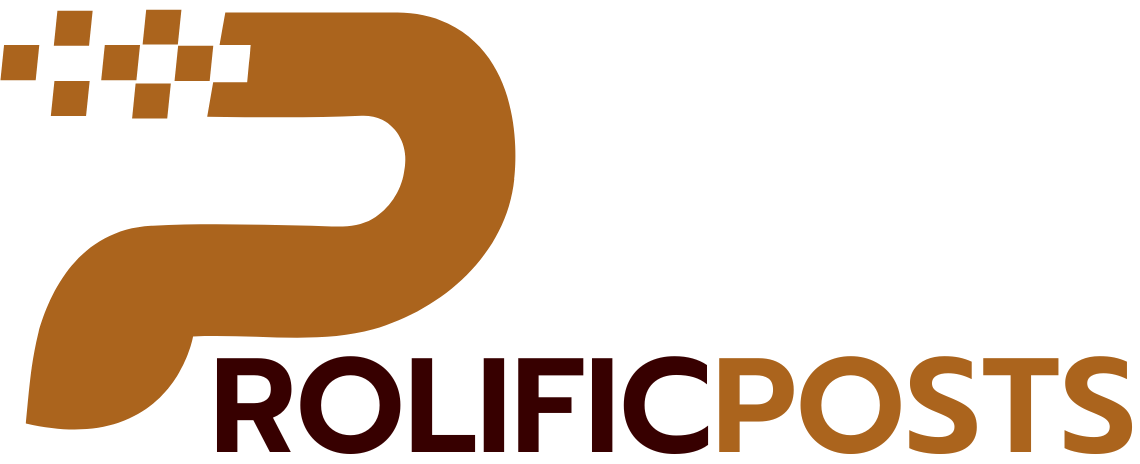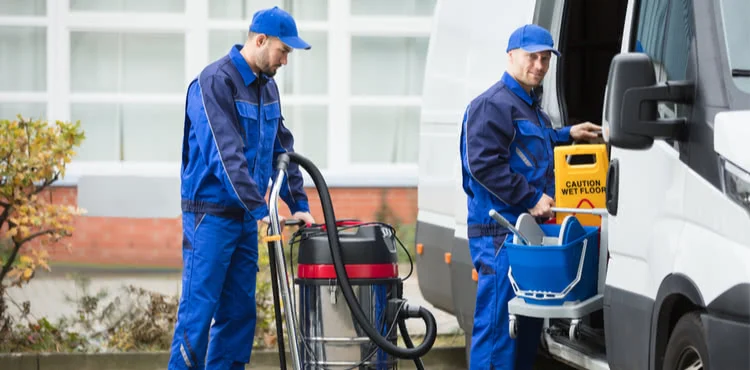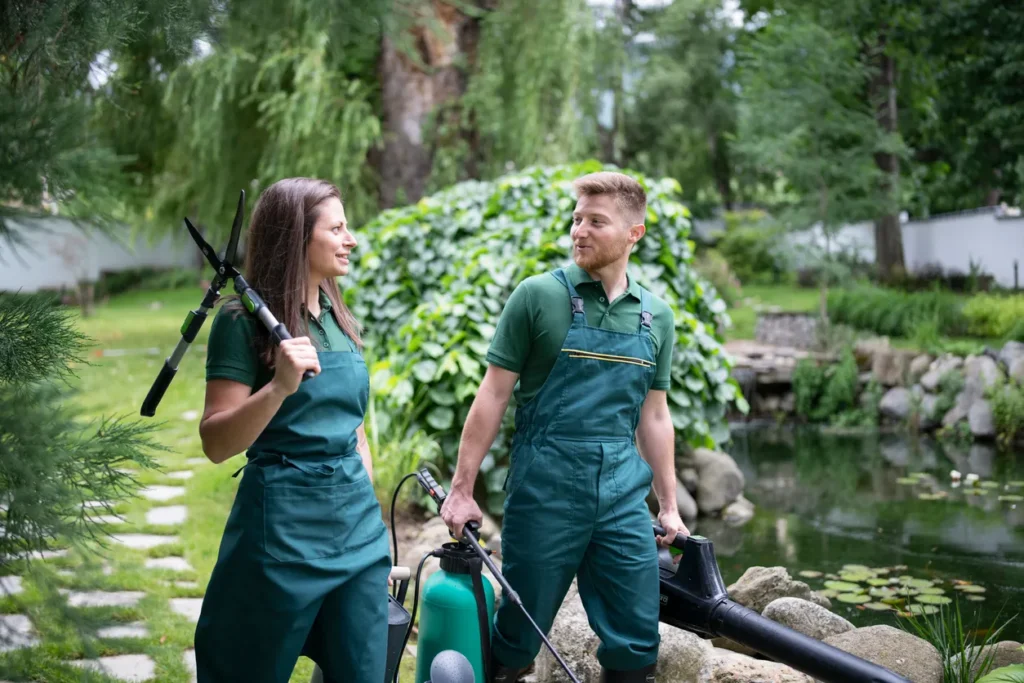Starting a cleaning business involves offering services to tidy up spaces, whether homes, offices, or commercial establishments. It begins with setting up your company, deciding on services offered, and creating a customer base. But amidst the excitement, understanding licensing requirements is crucial. These licenses are like permission slips from the government that allow you to legally operate your cleaning business. Without them, you risk fines, penalties, or even being shut down.
Licensing requirements vary depending on your location and the type of cleaning services you offer. They often include general business licenses, industry-specific permits, health and safety certifications, and insurance. By understanding and fulfilling these requirements, you not only ensure your business’s legality but also build trust with customers who see you as a credible and professional service provider.
Table of Contents
Legal Structure and Business Registration
When you’re starting a cleaning business, you’ve got to think about how you want to set it up legally. This means picking the right way to run your business. You could be a sole proprietor, partner with someone else, or form a company like an LLC or a corporation. Each one has different rules and things you have to do.
After you’ve picked how you want to set up your business, you’ve got to make it official. That means registering your business with the government. You’ll need to choose a name for your business and get a special number for taxes. This step makes sure you’re following the rules and lets you do things like open a bank account for your business.
It might sound a bit complicated, but it’s important to get it right. Making sure your business is set up the right way legally helps you avoid problems later on. Plus, it lets you do things like sign contracts and get loans for your business. If you’re not sure what to do, talking to experts like lawyers or accountants can help you figure it out.
General Business Licenses
When starting a cleaning business, obtaining a general business license is a fundamental step in establishing its legitimacy. This license serves as official permission from local authorities to operate within a specific jurisdiction. It’s akin to a stamp of approval, indicating that your business complies with local regulations and is recognized as a legal entity.
Securing a general business license typically involves completing application forms provided by your local government office or municipal authority. Alongside the application, you may need to submit documentation such as proof of identity, business address, and payment of a licensing fee. The specific requirements can vary depending on your location and the nature of your cleaning services.
Having a valid general business license not only ensures compliance with legal obligations but also instils confidence in potential clients. It demonstrates that your cleaning business is reputable, trustworthy, and accountable to regulatory standards. Additionally, it provides a foundation for building a professional reputation and facilitates future business endeavours, such as securing contracts or partnerships.
Industry-Specific Licenses and Permits
For instance, if your cleaning business includes janitorial services for commercial properties or offices, you may need a janitorial service license. This license typically involves meeting certain criteria related to training, equipment standards, and adherence to health and safety protocols.
Similarly, if your cleaning business offers specialized services such as carpet cleaning or hazardous waste disposal, you may need permits or certifications specific to those activities. These permits ensure that you’re qualified and equipped to handle specialized cleaning tasks safely and effectively.
Obtaining industry-specific licenses and permits often involves fulfilling additional requirements beyond those for a general business license. This may include undergoing training or certification programs, acquiring specific equipment or insurance coverage, and demonstrating compliance with industry standards.
While the process of obtaining industry-specific licenses and permits may seem daunting, it’s essential for ensuring the legal operation of your cleaning business and maintaining the safety and satisfaction of your clients.
Health and Safety Regulations
Health and safety regulations in the cleaning industry cover various aspects, including the proper handling and disposal of cleaning chemicals, equipment safety protocols, and personal protective equipment (PPE) requirements. It’s essential to educate yourself and your team on these regulations to prevent accidents and injuries on the job.
Training plays a significant role in compliance with health and safety regulations. Providing thorough training to your employees on safe cleaning practices, proper equipment usage, and emergency procedures can help mitigate risks and ensure a safe work environment.
Additionally, staying updated on changes to health and safety regulations is crucial. As standards evolve and new regulations are introduced, it’s essential to adapt your practices accordingly to remain compliant and uphold the well-being of your employees and clients.
Environmental Regulations
These regulations govern various aspects of your business, including the use and disposal of cleaning products, waste management practices, and energy consumption. Adhering to environmental regulations helps minimize your business’s ecological footprint and promotes environmental responsibility.
When selecting cleaning products, opt for those that are environmentally friendly and biodegradable. Many jurisdictions have restrictions on the use of certain chemicals, so it’s crucial to choose products that comply with local regulations and are safe for both your employees and the environment.
Proper waste management is another key aspect of environmental regulations. Ensure that waste generated during your cleaning operations is disposed of responsibly, following guidelines for recycling and hazardous waste disposal. Implementing recycling programs and reducing waste wherever possible can further demonstrate your commitment to environmental sustainability.
Insurance Requirements
One essential insurance policy for cleaning businesses is general liability insurance. This coverage protects your business against claims of bodily injury or property damage that may occur during your cleaning operations. It can help cover legal fees, medical expenses, and settlements resulting from accidents or damages caused by your business activities.
Workers’ compensation insurance is another vital insurance requirement, particularly if you have employees. This coverage provides financial assistance to employees who are injured or become ill on the job, covering medical expenses and lost wages. It’s typically required by law in most states and helps protect both your employees and your business from the financial consequences of workplace injuries.
Depending on the nature of your cleaning business, you may also need additional insurance coverage such as commercial auto insurance for vehicles used in your operations, property insurance to protect your business equipment and assets, and bonding insurance to provide reassurance to your clients that you’ll fulfill your contractual obligations.
While insurance requirements may vary depending on your location and the specific services you offer, having adequate insurance coverage is essential for safeguarding your business and ensuring peace of mind for both you and your clients. Consult with an insurance professional to determine the appropriate insurance policies for your cleaning business based on your unique needs and circumstances.
Tax Considerations
One important aspect is registering for an employer identification number (EIN) with the Internal Revenue Service (IRS). This unique identifier is used for tax purposes and is necessary if you have employees or operate your business as a corporation or partnership.
Depending on your business structure, you’ll have different tax obligations. For example, if you operate as a sole proprietorship or a single-member LLC, your business income and expenses are typically reported on your personal tax return using Schedule C. On the other hand, if your cleaning business is structured as a corporation or partnership, you’ll need to file a separate business tax return.
Deductible expenses are another key consideration for cleaning businesses. You can deduct expenses related to running your business, such as cleaning supplies, equipment, vehicle expenses, marketing costs, and insurance premiums. Keeping detailed records of your expenses is essential to ensure you claim all eligible deductions and minimize your taxable income.
Local Regulations and Zoning Laws
Zoning laws designate certain areas for specific types of land use, such as residential, commercial, or industrial. Before establishing your cleaning business, you’ll need to ensure that the location you choose complies with local zoning regulations. Some areas may have restrictions on operating businesses from home or in certain commercial zones.
Additionally, you’ll need to research local regulations governing businesses in your area. This may include obtaining permits or licenses specific to your locality, such as a business license or a home occupation permit if you plan to operate from your residence.
Other regulations to consider may include signage restrictions, noise ordinances, waste disposal regulations, and parking requirements. It’s essential to familiarize yourself with these regulations to avoid potential fines or legal issues that could arise from non-compliance.
Conclusion
Starting a cleaning business means getting the right licenses. These licenses show you’re following the rules and can legally operate. It’s not just about one license; there are different ones you might need depending on where you are and what services you offer. Remember, besides licenses, there are other rules to follow too, like keeping things safe for your workers and the environment.
Understanding these rules and getting the right licenses is key. It builds trust with clients, keeps you out of trouble, and helps your business grow. If it all seems confusing, don’t worry! There are experts who can guide you through the process. Just remember, by staying legal and following the rules, you’re setting your cleaning business up for success.



